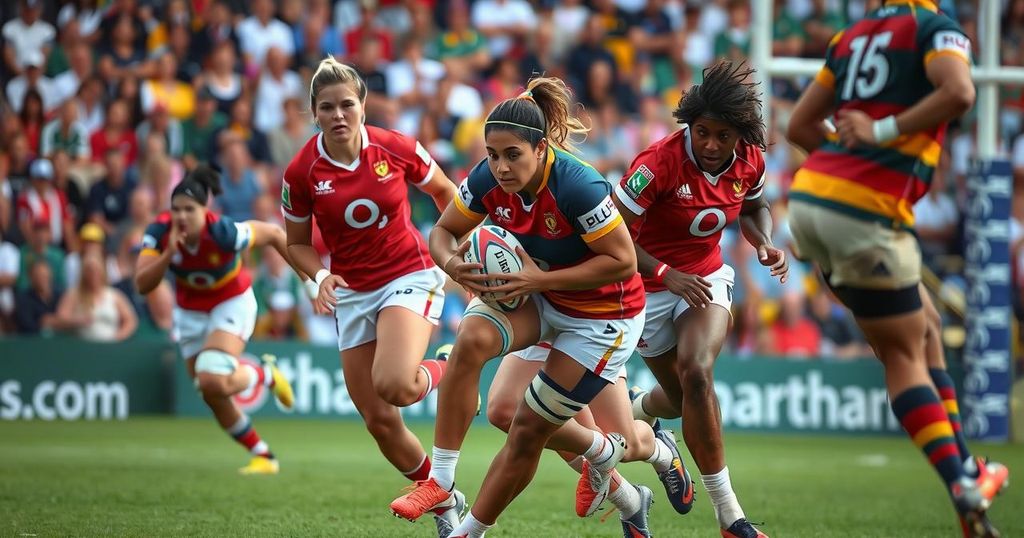The Challenges of Women’s Rugby in South Africa: A Call for Support

The article discusses the challenges facing women’s rugby in South Africa, highlighting that the sport is still viewed as an unnecessary expense. Despite the Springbok Women’s growing success, significant disparities in support and professional opportunities exist compared to other nations. Coach Timmy Goodwin emphasizes the urgent need for financial support and investment to professionalize the game and nurture young talent effectively.
In South Africa, the reality of women’s rugby starkly contrasts the rising status of the Springbok Women, revealing that the sport remains an unwelcome expense at the domestic level. Despite the Springbok Women’s significant achievements, including being a leading force in African rugby, their overall success has been limited by systemic neglect and underfunding. Timmy Goodwin, head coach of the Lions Women’s team, shed light on the formidable challenges faced in elevating women’s rugby over the past seven years.
Currently ranked 12th by World Rugby, the Springbok Women have never progressed beyond the pool stage of a World Cup, with a dismal record of three wins in four tournaments. Comparatively, women’s rugby in New Zealand and Australia has flourished, with recognized leagues and a long history, dating back to the 1930s in Australia and 1989 in New Zealand. In stark contrast, South Africa’s women’s rugby made its official debut only in 2004 and has languished at the lower end of international rankings.
The lack of professional infrastructure for women’s rugby in South Africa remains evident, as only the Bulls and Boland have fully contracted teams, resulting in their dominance. Coach Goodwin emphasized that transforming women’s rugby into a professional sport necessitates comprehensive broadcasting, increased sponsorship, improved quality of play, and better support systems at the union level. He stated, “A lot of work has to be done to make the women’s game in South Africa professional.”
Furthermore, Goodwin expressed concern over the reliance on financial support from the union following the end of a valued sponsorship that boosted their program. With SA Rugby’s plans for a Women’s Super League Rugby slated for 2025, there remains much to be resolved regarding the qualification processes for participating franchises. The development of women’s rugby at the grassroots level is crucial, especially in economically disadvantaged regions, underscoring the necessity for continued financial assistance to nurture young talent.
The Lions currently engage twelve clubs in their women’s league and eighteen junior teams, indicating promising growth potential. However, sustaining and advancing this progress hinges on substantial investment and commitment from both local and national rugby authorities to properly support women’s participation in the sport.
Women’s rugby in South Africa has historically suffered from insufficient support and professional infrastructure. Despite recent successes at the international level, particularly by the Springbok Women, the sport in South Africa remains underfunded and viewed as a secondary concern compared to the men’s game. Timmy Goodwin’s perspective as a coach highlights the significant challenges and obstacles in transforming the women’s game, including the need for financial backing and resources necessary for growth and professionalization. Comparisons to women’s rugby development in countries like Australia and New Zealand emphasize the long-standing structural support that South Africa’s women have lacked.
In summary, while the Springbok Women have made strides in their rugby performances, the overall state of women’s rugby in South Africa is concerning. The lack of professional structures, consistent funding, and serious commitment from rugby authorities remains a barrier to progress. There is an urgent need for increased investment and attention toward nurturing female talent and ensuring equitable opportunities within the sport. The potential for growth exists, but it requires significant systemic change and support at all levels.
Original Source: rugby365.com








